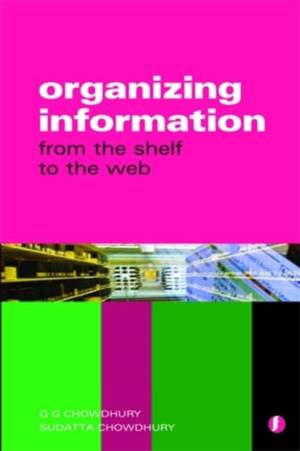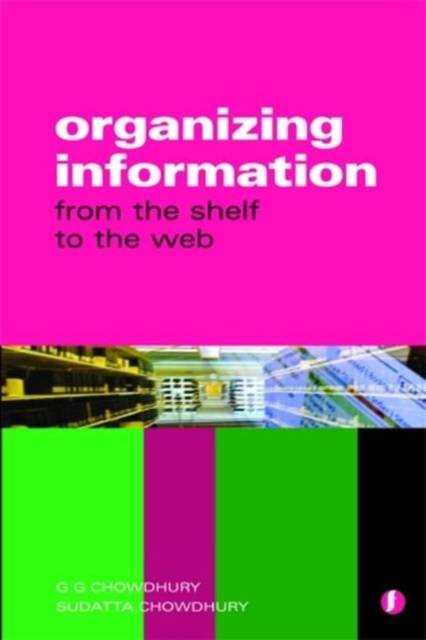
- Retrait gratuit dans votre magasin Club
- 7.000.000 titres dans notre catalogue
- Payer en toute sécurité
- Toujours un magasin près de chez vous
- Retrait gratuit dans votre magasin Club
- 7.000.000 titres dans notre catalogue
- Payer en toute sécurité
- Toujours un magasin près de chez vous
Organizing Information
From the Shelf to the Web
Chowdhury, Sudatta ChowdhuryDescription
Tomorrow's LIS professionals will have to be conversant with all the tools and techniques for organizing information in different domains - from the traditional library shelf to full-scale digital libraries. This core text covers the organization of the entire spectrum of information, and the principles, tools and techniques needed to do this effectively. The most up-to-date textbook yet available on this subject, this comprehensive book covers everything from traditional cataloguing and classification through to metadata, information architecture and the semantic web. Written by experienced academics in the area, who have authored several other successful textbooks, this book provides both an overview of the whole field of information organization and an easy-to-understand introduction to each of the individual topics, which can be followed up with further study by following the references at the end of each chapter.The chapters cover: organizing information - what it means; organizing information in different non-library environments; cataloguing; bibliographic formats - MARC21 and others; library classification; subject heading lists and thesauri in information organization; organization of internet information resources; metadata; markup languages; ontology; information architecture; the semantic web; and, information organization - issues and trends. A key student text for all information and library studies courses, the book is also valuable for practising LIS professionals who need to gain an understanding of the various tools and techniques required to master information organization.
Spécifications
Parties prenantes
- Auteur(s) :
- Editeur:
Contenu
- Nombre de pages :
- 256
- Langue:
- Anglais
Caractéristiques
- EAN:
- 9781856045780
- Date de parution :
- 14-05-07
- Format:
- Livre broché
- Format numérique:
- Trade paperback (VS)
- Dimensions :
- 155 mm x 231 mm
- Poids :
- 399 g







